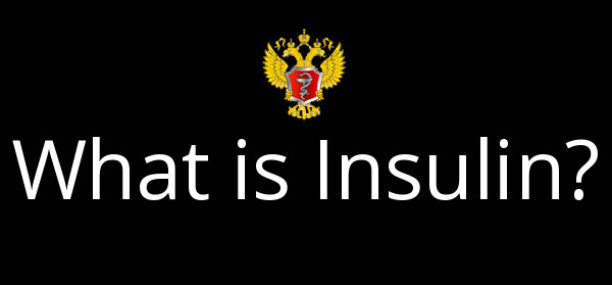Abstract
Insulin is a vital hormone involved in glucose metabolism and regulation. Dysregulation of insulin production or action can lead to various metabolic disorders, including diabetes mellitus. Understanding the factors that influence insulin secretion, its physiological effects, and its interactions with other hormones is essential for managing metabolic health and preventing related complications
What is Insulin?
Insulin is a hormone produced by the pancreas that helps regulate the levels of glucose (sugar) in the blood. It is secreted by the beta cells of the pancreas in response to elevated blood glucose levels, which occurs after a meal. Insulin helps the body’s cells absorb glucose from the bloodstream, where it can then be used for energy or stored in the liver and muscles for later use. Insulin also plays a role in regulating fat metabolism and protein synthesis.
Insulin is a hormone produced by the beta cells of the pancreas, and it plays a crucial role in regulating blood sugar levels and metabolism in the body.
Stimulators of Insulin Synthesis/Release:
- Glucose: Elevated blood glucose levels stimulate insulin release from pancreatic beta cells through a process called glucose-induced insulin secretion.
- Amino Acids: Certain amino acids, particularly those derived from protein digestion, can also stimulate insulin secretion.
- Gastrointestinal Hormones: Hormones released from the gastrointestinal tract, such as incretins (e.g., glucagon-like peptide-1 or GLP-1), can enhance insulin secretion in response to nutrient ingestion.
Inhibitors of Insulin Release:
- Low Blood Glucose Levels: Hypoglycemia (low blood sugar) inhibits insulin release.
- Sympathetic Nervous System Activation: Activation of the sympathetic nervous system, such as during stress or exercise, can suppress insulin secretion.
Importance of Insulin: Insulin is essential for:
- Facilitating glucose uptake by cells for energy production.
- Stimulating glycogen synthesis in the liver and muscle, storing excess glucose as glycogen.
- Inhibiting gluconeogenesis (production of glucose from non-carbohydrate sources) in the liver.
- Promoting fat storage by stimulating lipogenesis and inhibiting lipolysis.
The effects of insulin on the body include lowering blood glucose levels, promoting the uptake and storage of glucose in the liver and muscles, promoting the conversion of glucose to glycogen and inhibiting the conversion of glycogen back to glucose, promoting the synthesis of fatty acids and inhibiting the breakdown of fat, and promoting protein synthesis and inhibiting protein breakdown.
Insulin typically remains in the bloodstream for several hours after it is released, and excess insulin is broken down and eliminated by the liver and kidneys. Symptoms of excess insulin, or hypoglycemia, include shakiness, dizziness, sweating, and confusion. Symptoms of low insulin, or hyperglycemia, include thirst, frequent urination, blurred vision, and fatigue. Symptoms of no insulin, or diabetes, include high blood glucose levels, frequent urination, increased thirst, and weight loss.
Obesity can lead to insulin resistance, which occurs when the body’s cells become less responsive to insulin, leading to elevated blood glucose levels. Feeling low-power or fatigued can also be a symptom of insulin resistance or diabetes.
Insulin also plays a role in regulating the immune system. Insulin helps regulate the production and activity of immune cells, and low levels of insulin have been associated with impaired immune function. When insulin is not sufficient, the immune system may be weakened, making the body more susceptible to infections and illnesses.
Insulin can also affect blood pressure and pregnancy. High insulin levels have been associated with high blood pressure, and insulin resistance during pregnancy can lead to gestational diabetes, a temporary form of diabetes that occurs during pregnancy.
Diabetes is a medical condition that occurs when the body does not produce enough insulin or cannot effectively use the insulin that is produced. Insulin therapy is often used to manage diabetes, and proper insulin management is crucial to preventing complications such as ketoacidosis, a serious condition that occurs when the body produces high levels of ketones, which can lead to coma or death.
Classification of Diabetes:
- Type 1 Diabetes: Results from autoimmune destruction of pancreatic beta cells, leading to absolute insulin deficiency.
- Type 2 Diabetes: Characterized by insulin resistance, where cells become less responsive to insulin, and relative insulin deficiency.
Distinguishing Features:
- Type 1 diabetes often presents in childhood or adolescence, while Type 2 diabetes is more common in adults, particularly those with risk factors such as obesity and sedentary lifestyle.
- Type 1 diabetes is typically associated with a lean body habitus and the presence of autoimmune markers, while Type 2 diabetes is often associated with obesity and insulin resistance.
Diabetes Insipidus:
- Diabetes insipidus is a disorder characterized by excessive urination and thirst due to inadequate production or response to the antidiuretic hormone (ADH), unrelated to insulin.
- Unlike diabetes mellitus, diabetes insipidus does not involve abnormal blood sugar levels.
Suspecting Insulin Issues: Suspect insulin issues if an individual presents with:
- Symptoms of hyperglycemia (e.g., increased thirst, frequent urination, fatigue).
- Symptoms of hypoglycemia (e.g., sweating, palpitations, confusion).
- Risk factors for diabetes (e.g., obesity, family history).
Effects of Insulin:
- Blood Pressure: Insulin promotes sodium retention and can contribute to hypertension.
- Blood Sugar Levels: Insulin lowers blood glucose levels by facilitating glucose uptake into cells.
- Body Fat Distribution: Insulin promotes fat storage, particularly in visceral adipose tissue.
- Stress: Stress-induced activation of the sympathetic nervous system can inhibit insulin secretion.
- Kidney Health: Insulin helps regulate electrolyte balance and may have protective effects on kidney function.
Role of Hormones in Insulin Regulation:
- Renin-Angiotensin-Aldosterone System (RAAS): Angiotensin II can impair insulin sensitivity and promote insulin resistance.
- Cortisol: Elevated cortisol levels, such as those seen in chronic stress or Cushing’s syndrome, can induce insulin resistance.
- Adrenaline (Epinephrine): Acute stress or sympathetic activation can inhibit insulin secretion and promote glycogenolysis and gluconeogenesis.
Verified by: Dr.Diab (March 28, 2024)
Citation: Dr.Diab. (March 28, 2024). What is the role of insulin, and how does it help your body?. Medcoi Journal of Medicine, 8(2). urn:medcoi:article21148.












There are no comments yet
Or use one of these social networks